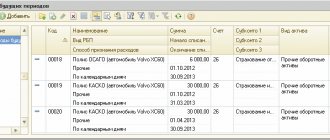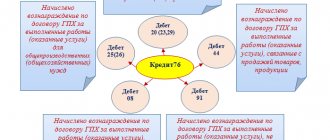If you invest in instruments denominated in a foreign currency, then tax will be withheld not only from the increase in the security's price, but also from changes in the exchange rate.
We bought paper for $1000 at an exchange rate of 60, and sold it for the same $1000, but at an exchange rate of 70 per dollar. Pay tax on a rebate amount equal to 70 x 1000 - 60 x 1000.
When selling securities denominated in dollars, a currency revaluation will be made and the tax will be written off from the ruble value.
The broker balances transactions on different securities (one made a profit, the other made a loss - the broker will calculate the overall result) and determines the taxable base.
The long-term shareholding benefit also applies to gains from differences in purchase and sale prices, including foreign exchange revaluation.
(!) From 2021, all coupons of all bonds (state and corporate) are taxed at a rate of 13% for residents and 30% for non-residents. The entire coupon is subject to tax. There are no exceptions based on the type of issuer, coupon rate or amount of income received. Moreover, this income can be exempt from tax by purchasing bonds on IIS-B.
Income from the sale of securities (including bonds), including income from exchange rate differences, is exempt from taxes if these securities have been held for more than 3 years. However, you will have to pay tax on the coupon. More details here: Benefit for long-term ownership of securities (LDV).
At the same time, income from the sale of securities, and income from exchange rate differences, and income in the form of a coupon can be exempt from tax if you purchase them on an IIS type B.
From January 1, 2021, when selling or redeeming government Eurobonds, income generated from exchange rate changes is exempt from taxation.
Rules for accounting for shares in accounting (nuances)
If, as of the reporting date, the organizer of trading on the securities market does not calculate the market price of securities in the prescribed manner, then for the purposes of financial statements as of that date, it is advisable to take the latest market price at the time of calculation as the current market value of these securities. The procedure for calculating the market price of issue-grade securities and investment shares of mutual investment funds admitted for circulation through trade organizers, and establishing the maximum limit for market price fluctuations, is established in Resolution of the Federal Securities Commission of Russia dated 01.01.2001 N 03-52/ps.
Revaluation of currency balances in 1C 8.2
Valuables whose value is expressed in dollars and euros are recalculated in the balance sheet at the exchange rate. Data for calculation is pulled from the directory of the same name. This is how currency balances are revalued in 1C 8.2. What document is used to document this transaction? “Routine operation” with the type “Revaluation of funds” or “Closing of the month”. Let's consider this scheme using the example of a resident transferring funds to a foreign counterparty as payment for goods.
Revaluation and “transfer” of shares
The provisions of the order include financial investments for which their current market value is not determined. The current market value of securities, according to paragraph 13 of PBU 19/02, means their market price, calculated in the prescribed manner by the organizer of trading on the securities market. When determining the current market value of financial investments in accounting and financial statements, information on the market price of financial investments not only of Russian organizers of trading on the securities market, but also of foreign organized markets or organizers of trade that have the appropriate license from a national authorized body (Letter Ministry of Finance of the Russian Federation dated May 15, 2003 N 16-00-14/162).
Foreign exchange income under the simplified tax system and OSNO
Simplified people freely open foreign currency accounts for settlements with foreign partners.
Under the simplified tax system, income and expenses in foreign currency are recalculated into RUB at the Central Bank rate used on the relevant dates.
According to the Tax Code, simplifiers are not obliged to:
- revaluate foreign currency balances due to changes in quotes;
- carry out accounting of costs and income from such recalculation.
Therefore, unlike OSNO companies, simplified companies:
- no amounts arise in the form of positive (or negative) exchange rate differences.
- income and costs are established once - on the date of occurrence of income or expenses.
The explanation for such features is the cash method, which is the basis of the simplified tax system.
Important! Foreign exchange earnings are subject to conversion into RUB at the Central Bank exchange rate valid on the day it is included in income. It will be credited to a transit (not current) currency account. Advance amounts in foreign currency are included in income in the same way.
The company's costs incurred due to foreign currency loans and credits include:
- interest that must be paid regularly;
- exchange differences resulting from the revaluation of accrued %%;
- minus differences between the quotes of the Central Bank and the domestic market, which arise when purchasing foreign currency necessary for the timely execution of loan agreements;
Additional costs associated with expenses under surety agreements, credit risk insurance, and bank guarantees are also included in this list.
Accounting and tax accounting for the revaluation and sale of shares traded on the securities market
Check for impairment At least once a year (as of December 31 of the current year) in accounting, check for impairment of securities (i.e., for current liquidity - saleability) if there are signs of a decrease in their price. Such signs, in particular, include: - the issuer is declared bankrupt or has signs of bankruptcy; — making a significant number of transactions in the securities market with similar securities at a price significantly lower than their book value; — absence or significant reduction in income payments on securities (for example, dividends, interest, coupons, etc.) with a high probability of their further reduction. To conduct the audit, determine the estimated value of a particular security and compare it with the book value of the security.
Advance payments and exchange rate differences
Amounts of advance funds issued or received are subject to accounting at the rate current on the date that corresponds to the moment of transfer of the money supply or its receipt.
When, for example, raw materials are purchased on account of an advance payment previously paid, it is paid at the rate prevailing on the day the advance money was transferred.
Problems in accounting are possible if they are insufficient to fully cover the cost of the supplied raw materials. The value of the purchased product will be formed from two components:
- The advance amount, which is calculated in accordance with the quotation on the date of its sending.
- Cost not covered in advance. It is calculated using the exchange rate in effect on the day the raw materials were accepted for accounting.
The previously transferred advance payment is not subsequently subject to revaluation.
Revaluation theory
For example, add an item to the accounting policy with the following content: “...Financial investments of an organization that are subject to revaluation for the purpose of reflecting income tax calculations in accounting are divided into the following groups: a) financial investments acquired by the company for the purpose of generating income from their retention ( in the form of dividends, etc.) and the disposal of which is not expected. The revaluation of this group of assets is recognized as a permanent difference and is reflected in accounting as a permanent tax liability; b) financial investments acquired by the company with the aim of generating income from an increase in their value, and other short-term financial investments.
Features of payment in foreign currency for loans and borrowings
Loans received by companies are:
- Short-term (up to 12 months).
- Long-term (more than a year).
In the first case, accounts are used to account for them. 66, 66.21, 66.22, and operations are reflected as follows:
| Debit | Credit | A comment |
| 52 | 66.21 | Money was credited to the foreign currency account as a short-term loan |
| 66.21 | 52 | Transfer of funds to cover a loan in foreign currency |
| 66.22 | 52 | Interest coverage |
In accounting for long-term loans in $, €, £, accounts are used. 67, 67.21, 67.22:
| Debit | Credit | A comment |
| 52 | 67.21 | Money is credited to a foreign currency account as a long-term loan |
| 67.21 | 52 | Funds transferred to repay the loan |
| 67.22 | 52 | Transferred interest |
Accounting for loans in foreign currency is carried out in a similar way using accounts 66.23 and 67.23.
Annual revaluation of other people's shares on the balance sheet of the enterprise
According to supporters of this position, when revaluing financial investments, leading to the formation of income in accounting, taxable temporary differences are formed and, accordingly, deferred tax liabilities. Upon further revaluation or disposal of the asset, the deferred tax liability is adjusted. Let's return to our example.
In this case, the accountant makes the following entries: Debit 58, Credit 91 - 1000 rubles. ((2 rubles - 1 ruble) x 1000 pcs.) - reflects the difference formed as a result of the revaluation of financial investments; Debit 91, Credit 99 - 1000 rub. — accounting profit is reflected as a result of revaluation; Debit 99, Credit 68 - 240 rub. (RUB 1,000 x 24%) - reflects the conditional income tax expense; Get the full text Debit 68, Credit 77 - 240 rub. (RUB 1,000 x 24%) - deferred tax liabilities are reflected; Debit 99, Credit 84 - 760 rub. (1000 rub.
Date: 01.04.2011 13:33Author: didal Registration: 10.08.2006Messages: 1306 As far as I understand, the question was about the possibility of increasing the value (according to accounting data) of the organization’s long-term financial investments (possibly to increase the value of net assets without payment of additional property tax), and not about increasing the authorized capital of this organization or another legal entity - the issuer of securities on the balance sheet of this very organization. In addition, I do not agree that it is impossible to convert shares into shares of the same category (type) with a higher par value using additional capital formed as a result of the revaluation of fixed assets carried out by the joint-stock company on its own initiative. In this case, you will have to pay a state fee for registering the issue of securities and the shareholders will supposedly have taxable income.
With uv. lexander Date: 03/31/2011 11:03 Author: AL1 Registration: 03/15/2010 Messages: 24 Hey, corporate people... Does anyone know anything on this issue, huh? Is it really possible that “nobody here has ever overvalued the shares?” Date: 03/31/2011 18:02 Author: didal Registration: 08/10/2006 Messages: 1306 The last time I encountered something like this was at the end of 2006. The PA hired an auditor to give an opinion (they decided to take insurance) and, of course, an appraiser. As a result, the LLC increased the book value (according to accounting data) of the shares several times in accordance with the appraiser’s report.
The difference, if my memory serves me correctly, was attributed to profit after taxation. That is, according to accounting data. However, the value of shares on the LLC’s balance sheet increased, but for tax purposes remained the same.
| Dear visitors! The site offers standard solutions to problems, but each case is individual and has its own nuances. |
| If you want to find out how to solve your particular problem, call toll-free ext. 504 (consultation free) |
Consequently, transactions for the sale of shares and shares should be reflected in the following entries: D 91 K 58 - for the amount of the book value of the shares; D 62 K 91 - for the amount of the contractual value of the financial investments being sold; D 51 K 62 - for the amount of funds actually received If a reserve was previously created for the depreciation of investments in securities for the shares or shares being sold, it must also be written off. Example 2. An organization purchased shares with a total value of 100,000 rubles in August.
Accounting for currency revaluation
To carry out accounting operations relating to currency movements, there is account 52 “Currency accounts”, which has 2 sub-accounts for settlements within the country and abroad of the Russian Federation. Let's look at how the balance sheet is formed for various currency transactions: let us remind you that they must be reflected exclusively in rubles.
Postings when purchasing currency
Organizations can buy the currencies of other countries for various purposes, crediting it to their foreign exchange account. In this case, the following entries will be made in the accounting entries:
- debit 57 “Transfers”, credit 51 “Current account” – funds for the purchase of foreign currency are transferred from the organization’s account;
- debit 52.1 “Currency accounts”, credit 57 “Transfers in transit” - crediting the purchased currency to the company’s special account;
- debit 10 “Materials”, credit 57 “Transfers in transit” - reflection of the result of revaluation of the currency balance on the account (the difference between the exchange rate of the Central Bank of the Russian Federation and the purchase rate), as well as a separate entry - accounting for the bank commission;
- debit 51 “Current account”, credit 57 “Transfers in transit” – crediting of unused funds.
If currency is not purchased for import payments, then the posting is simpler:
- debit 57 “Transfers”, credit 51 “Current account” – transfer of money for the purchase of currency;
- debit 52.1 “Currency accounts”, credit 57 “Transfers in transit” - crediting funds to a transit account;
- debit 91.2 “Other expenses”, credit 51 “Current account” - funds paid to the bank as remuneration.
The result of the revaluation is reflected below. If it is positive, the posting is made to the “Other income” account (debit 57, credit 91.1), and if negative, to the “Other expenses” account (debit 91.2, credit 57).
On the last day of the month, the revaluation of foreign currency balances is reflected:
- in case of profit - by debit 91.9, credit 99;
- in case of loss - debit 99, credit 91.9.
Revaluation of foreign currency balances upon purchase
The acquisition of foreign currency by companies is necessary for business development, for example, in order to import goods. The following entries should be made in accounting:
| Debit | Credit | A comment |
| 57 | 51 | Funds were transferred to purchase foreign currency |
| 52 (1-3) | 57 | Foreign currency is credited to a special account |
| 10 | 57 | Reflection of revaluation of foreign currency balances (difference between Central Bank rates and purchases) |
| 91.2 | 57 | Bank commission accounting |
| 51 | 57 | Crediting unused amounts |
In the case when foreign currency is not purchased for import operations, the following should be recorded in accounting:
| Debit | Credit | A comment |
| 57 | 51 | Funds for the purchase of foreign currency have been transferred |
| 52 (1-3) | 57 | Money has been credited to the transit account |
| 91.2 | 51 | Remuneration paid to the bank |
The financial result of the transaction is subsequently reflected:
- When the Central Bank exchange rate is less than the purchase rate, the difference (exchange rate) is taken into account as a component of costs:
Dt 91.2 Kt 57
The amount reduces the company's profit.
- Operating income appears provided that the Central Bank quotation exceeds the purchase rate:
Dt 57 Kt 91.1
The company's profits are growing.
Example 1. Bought $4500. The purpose of purchasing currency is to pay travel allowances to employees going abroad.
265.5 thousand RUB were transferred to the bank.
The bank purchased $ at the rate of 57.3 rubles/dollar. For the operation he wrote off the commission:
(265,500/4500 – 57.3) 4500 = 7,650 rubles.
On the day when the operation was carried out, the Central Bank exchange rate was 56.8 rubles/dollar.
The revaluation of foreign currency balances should be done as follows:
| Debit | Credit | Amount, thousand rubles | Description |
| 57 | 51 | 265,50 | Money for the purchase of foreign currency has been transferred |
| 52.1 (2-3) | 57 | 255,60 (4500·56,8) | Crediting purchased foreign currency to a transit account |
| 91.2 | 57 | 7,650 | Commission of the bank |
| 91.2 | 57 | 2,250 ((57,3-56,8)·4500) | Exchange rate difference noted |
The enterprise has the right to use the purchased currency to:
- Payment for contracts concluded with foreign counterparties:
Dt 60 Kt 52 (1-3)
- Financing expenses for work trips abroad. The currency received by the company at the cash desk is reflected as follows:
Dt 50 Kt 52 (1-3)
- Repayment of loans received in foreign currency:
Dt 66 Kt 52 (1-3)
Important! When purchasing foreign currency, it is necessary to take into account the resulting exchange rate differences.
Example #1
The company purchased $5,000 to pay for employees' expenses on business trips abroad. To do this, the company transferred 145.8 thousand rubles to the bank. The credit institution purchased foreign currency at the rate of 28.8 rubles/dollar. For this operation, the bank wrote off a commission in the amount of 1.8 thousand rubles. On the day of the transaction, the exchange rate of the Central Bank of the Russian Federation was 28.5 rubles/dollar. Let's look at how the revaluation of currency balances is formalized in 1C 8.2. Postings:
- DT57 KT51 - 145.8 thousand rubles. — money was transferred to buy dollars.
- DT52-1-3 KT57 - 142.5 thousand rubles. (5,000 x 28.5) - the purchased currency is credited to the transit account.
- DT91-2 KT57 - 1.8 thousand rubles. — bank commission is taken into account.
- DT91-2 KT57 - 1.5 thousand rubles. ((28.8 - 28.5) x 5000) - reflects the exchange rate difference.
Postings when receiving currency from counterparties
If the company received currency as payment for goods or services from foreign partners, this money must be credited to the transit account (debit 52.1, credit 62).
IMPORTANT INFORMATION! The organization is obliged to sell 50% of the foreign currency received in this way within the country. Violation of this requirement is fraught with a fine in the amount of unrealized currency.
Example No. 2
The transit account of the company received proceeds from the export of goods in the amount of 10 thousand dollars. On this day, the bank received an order from the company to sell 50% of this amount and transfer the rest to the organization’s account. The mandatory sale of currency was carried out by the bank at the rate of 29.37 rubles/dollar. The official dollar exchange rate on the day the funds were received was 29.47 rubles/dollar. The bank's commission for transactions amounted to 1.2 thousand rubles.
- DT52-1-2 KT62 - 294.7 thousand rubles. (10,000 x 29.47) - export proceeds are credited to the account.
- DT57 KT52-1-2 - 147.35 thousand rubles. (5,000 x 29.47) - 50% of the amount is allocated for mandatory sale.
- DT51 KT91-1 - 146.85 thousand rubles. (5,000 x 29.37) - funds are credited to the organization’s account.
- DT91-2 KT57 - 147.35 thousand rubles. — the sold currency is written off.
- DT91-2, KT51 - 1.2 thousand rubles. — bank commission is taken into account.
- DT52-1-1 KT52-1-2 - 147.35 thousand rubles - the rest of the proceeds is credited.
- DT99 KT91 – 1.7 thousand rubles. (147.35 - 146.85 + 1.2) – the loss from the operation is reflected.
Postings for settlements in foreign currency
Having purchased currency, a company can use it for purposes permitted by law:
- pay obligations under foreign agreements (debit 60, credit 52.1);
- issue foreign travel allowances (debit 50, credit 52.1);
- repay foreign currency loans (debit 66, credit 52.1).
Example No. 3
The CJSC entered into an agreement for the supply of goods with the LLC. The transaction amount is 100 thousand dollars. Payments are made in foreign currency, since the supplier is not a resident of the Russian Federation.
The agreement provides for the transfer of 50% of the advance payment by February 2 and the shipment of goods on February 8. The buyer must transfer the remaining amount on February 15. The supplier transfers ownership on the day of shipment.
The dollar exchange rate was:
- as of 02.02 – 35.41 rubles/USD;
- as of 02/08 – 36.37 rubles/USD;
- as of February 15 – 34.55 rubles/USD.
Let's look at how the revaluation of currency balances in 1C 8.2 is displayed in tax accounting:
- DT60 KT52 – 1770.73 thousand rubles. (50,000 x 35.41) – transfer of advance payment to the seller.
- DT41 KT60 – 3589.72 thousand rubles. (50,000 x 35.41 + 50,000 x 36.37) – goods are capitalized.
- DT60 KT52 – 1727.89 thousand rubles. (50,000 x 34.55) – the balance of the debt is repaid.
- DT60 KT91-1 – 91.1 thousand rubles. (50,000 x (36.37–34.55) – the exchange rate difference is reflected.
When calculating NPP, the buyer uses the accrual method. On the day the transaction is closed, the LLC accountant includes the positive difference in the amount of 91.1 thousand rubles as income in NU.
Sales of foreign currency earnings
As mentioned above, half of the foreign exchange earnings must be sold on the domestic market if these funds have not been spent on settlements with foreign partners within a week. This should be reflected in the balance sheet as follows:
- debit 57, credit 52.1 – direction of foreign currency funds for sale;
- debit 51, credit 91.1 – crediting the proceeds for foreign currency to the account;
- debit 91.1, credit 57 – write-off of sold foreign currency funds;
- debit 91.2, credit 51 – accounting for sales expenses.
The unrealized portion of foreign exchange earnings is credited to the account by posting: debit 52.1, credit 52.1.2.
Example No. 4
The LLC entered into a deal for the supply of goods with a foreign organization in the amount of 11.8 thousand dollars. The cost of production is 200 thousand rubles. On October 10, 2015, the partner transferred $5,000 in advance to the LLC. On October 20, 2015, the LLC shipped the entire shipment. The final payment was made on 11/25/15. On the same day, ownership of the product was transferred to the buyer. The supplier uses a general tax system, NPP pays quarterly.
The dollar exchange rate is:
- on 10.10 – 29.4 rubles/dollars;
- on October 25 – 29.70 rubles/dollars;
- on 25.11 – 30.00 rub./dollar.
In BU, advance payment and shipment are recorded using the following transactions:
- DT52 KT62 – 147 thousand rubles. (5,000 x 29.4) – prepayment for the goods has been received.
- DT76 KT68 – 22.424 thousand rubles. – VAT is charged on the advance payment.
- DT62 KT90-1– 348.96 thousand rubles. (147+ 6.8 x 29.7) – sales revenue is taken into account.
- DT62 KT62– 147 thousand rubles. - the advance has been credited.
- DT90-3 KT68 – 53.46 thousand rubles. (10,000 x 29.7 x 0.18) – VAT charged.
- DT68 KT76 – 22.424 thousand rubles. – the tax amount is accepted for deduction.
- DT90-2 KT41– 200 thousand rubles. – the cost of production is taken into account. The same amount is included in non-operating expenses.
Since the contract provides for an advance and the final payment is made after shipment, an exchange rate difference arises in accounting in relation to the second part of the payment, i.e. 6.8 thousand dollars. It is reflected in the statements on the date of receipt of funds:
- DT52 KT62 – 204 thousand rubles. (6.8 x 30) – the second part of the payment has been received.
- DT62 KT91-1– 2,040 thousand rubles. (6.8 x (30–29.7)) – reflects the exchange rate difference.
Revaluation of securities in tax accounting
There is no need to revalue shares on the date of sale. The financial result from the sale of shares is determined by the following formula: ┌───────────── ┌────────────── ┌────── ──── ────── ┌─────────── Accounting Sales price Cost of shares Expenses profit = shares, - according to the last one - for sale (loss) established valuation (accounting value of shares in the contract) └─── ────────── └────────────── └────────────── ── └─────── ──── Tax accounting for the sale of shares Let us say right away that the sale of securities (shares) is not subject to VAT. Therefore, input VAT on expenses associated with the sale of securities is not deductible, but is included separately in expenses.
Types of securities In accounting, for the purposes of revaluation, securities are divided into : - financial investments for which the current market value can be determined (securities listed (admitted for circulation) on the organized securities market); — financial investments for which the current market value is not determined (securities that are not quoted (not admitted to circulation) on the organized securities market). Depending on what type of security the security is, the rules for current revaluation and the reflection of its results will be different (revaluation (increase in value), markdown (decrease in value) or the formation of an impairment reserve). This procedure follows from paragraphs 18–22 and section VI of PBU 19/02. Quoted securities Quoted securities are accepted for accounting at historical cost. This follows from paragraph 4 of paragraph 38, paragraph 2 of paragraph 39 of PBU 19/02, paragraph 7 of PBU 9/99, paragraph 11 of PBU 10/99 and the Instructions for the chart of accounts (accounts 59 and 91). When taxing, do not create a reserve for the depreciation of securities, regardless of the tax regime that the organization applies. This is due to the fact that when calculating income tax, such a reserve is created only by professional participants in the securities market engaged in dealer activities for the depreciation of quoted securities. Unlike most other types of property of an organization (fixed assets, inventories, etc.), the revaluation of which is carried out only in exceptional cases, PBU 19/02 provides for changes in the initial value of certain categories of financial investments.
Revaluation of securities for which the current market value is determined is carried out at the time of change in quotations on the securities market. At the same time, income received from such revaluation (positive difference) is not taken into account when determining the tax base for income tax (subclause 24, clause 1, article 251 of the Tax Code of the Russian Federation). [12] Equally, loss from the revaluation of securities (negative difference) is not accepted for tax purposes (clause 46 of Art.
270 of the Tax Code of the Russian Federation). As for the taxation of such transactions, in the situation under consideration the organization does not bring financial investments (securities) to their market value, but receives coupon (that is, fixed) or interest income. Therefore, such amounts are subject to inclusion in the tax base for income tax, regardless of the actual receipt of funds (for organizations accounting for income and expenses on an accrual basis) (clause 1 of Art.
271 of the Tax Code of the Russian Federation). Moreover, for tax purposes, such income is recognized as received and is included in the corresponding income at the end of the corresponding reporting period, regardless of the terms of the agreements (clause. After all, according to clause 2 of Article 280 of the Tax Code of the Russian Federation, upon the sale (other disposal) of a security, it is taken into account as expenses the purchase price of a security, which in this case does not exist (the security was received free of charge) (letter of the Ministry of Finance of Russia dated 06/07/2006 N 03-03-04/2/157).
Revaluation of securities In accounting, the original cost of securities may change. Securities traded on the securities market must be revalued monthly or quarterly to the current market value with the difference allocated to other income (expenses) (clause 20 of PBU 19/02).
In the financial statements, securities for which an impairment reserve has been formed are shown at their estimated value, which is equal to the difference between the book value (account 58) and the amount of the reserve (account 59). The balance of account 59 is not shown separately in the balance sheet (clause 38 of PBU 19/02). When retiring securities for which a reserve was created, the amount of the reserve is included in the organization’s other income at the end of the year or the reporting period when their disposal occurred (Debit 59 - Credit 91). For profit tax purposes, securities, including those traded on the securities market, are not subject to revaluation. Reflect the results of the revaluation as a decrease or increase in the initial (book) value of securities and other expenses or income of the organization.
To do this, reflect the difference between the new valuation of securities as of the reporting date and their previous valuation on account 58 “Financial investments in correspondence with account 91 “Other income and expenses”. Make the following entries: DEBIT 58 CREDIT 91-1 – reflects the revaluation of securities; DEBIT 91-2 CREDIT 58 – reflects the markdown (impairment) of securities. This procedure follows from paragraph 20 of PBU 19/02, paragraphs 7, 10. 5 and 16 of PBU 9/99, paragraphs 11 and 14. 4 of PBU 10/99 and the Instructions for the chart of accounts (accounts 58 and 91). When calculating taxes, do not take into account the revaluation of listed securities, regardless of the tax regime that the organization applies. For the general taxation regime, this is explained as follows. Check for impairment At least once a year (as of December 31 of the current year) in accounting, check for impairment of securities (i.e., for current liquidity - saleability) if there are signs of a decrease in their price.
Such signs, in particular, include: - the issuer is declared bankrupt or has signs of bankruptcy; — making a significant number of transactions in the securities market with similar securities at a price significantly lower than their book value; - absence or significant reduction in payments of income on securities (for example, dividends, interest, coupons, etc. This procedure follows from paragraph 22 and section VI of PBU 19/02. If the initial cost of unquoted debt securities (for example, bills or unquoted bonds) differs from their face value, the organization can attribute this difference to financial results (other income or expenses). This must be done evenly throughout the circulation period of the security, according to the income due on it, provided for when it was issued.
This procedure is provided for in paragraph 22 and section V of PBU 19/02. At the same time, make accounting entries similar to entries for the revaluation of quoted securities. In particular, an organization can use this procedure to take into account the discount on a bill or the discount on a bond. For tax purposes, adjustment of the value of debt securities towards par value according to rules similar to accounting is not provided for (letter of the Ministry of Finance of Russia dated April 8, 2005. When creating a reserve in accounting, reflect the occurrence of a permanent difference and the corresponding permanent tax liability arising due to , that during taxation such a reserve is not created.
If the amount of the reserve decreases (including from the disposal of securities or an increase in their estimated value), reflect the occurrence of a permanent difference and the corresponding permanent tax asset. Form it through financial results. That is, include its amount in other expenses of the organization.
The amount of the provision may change in cases where: - during subsequent impairment tests, the estimated price of the security changes (decreases or increases); — subsequent audits revealed that the securities no longer meet the criteria for impairment; — a depreciating security is retired.
Quoted securities are accepted for accounting at their original cost. However, at the end of each year, the value of quoted shares must be reflected in accounting and financial statements at the current market value. To do this, you should adjust their assessment as of the previous reporting date, decreasing or increasing it.
Revaluations can be done monthly or quarterly. The frequency of revaluation is fixed in the accounting policy of the organization (clause 7 of PBU 1/2008). If the original cost of unquoted debt securities (for example, bills or unquoted bonds) differs from their par value, the entity may charge the difference to financial results (other income or expenses). This must be done evenly during the circulation period of the security, according to the income due on it, provided for when it was issued. This procedure is provided for in paragraph 22 and section V of PBU 19/02. If the amount of the reserve decreases (including from the disposal of securities or an increase in their estimated value), reflect the occurrence of a permanent difference and the corresponding permanent tax asset. They arise due to the fact that the amount of the reserve created for the depreciation of these financial investments in accounting increases the organization’s income, but is not taken into account when calculating income tax (subclause 25, clause 1, art.
251 of the Tax Code of the Russian Federation). The decision to revaluate securities is formalized by order of the manager. Reflect the results of the revaluation of securities in an act drawn up in any form. Confirm the conclusions about revaluation, depreciation, and depreciation of securities made in the report with documents (for example, reports on securities quotations based on trading results on the date of revaluation, the conclusion of an independent appraiser, etc.).
This procedure follows from Article 9 of the Law of December 6, 2011 No. 402-FZ. To conduct the audit, determine the estimated value of a particular security and compare it with the book value of the security. Select (develop) the methodology by which the settlement price is determined yourself and establish it in the organization’s accounting policy (clause 7 of PBU 1/2008). For example, for this you can attract an independent appraiser or (for
Read on the Russia-Ukraine website:
- Redevelopment of an Apartment Is It Possible to Enlarge the Corridor at the Expense of the Room
- List of Documents for Removing the Encumbrance on a Military Mortgage
- Letter to the Tax Office about Change of Legal Address and OKTMO Sample
- Letter to the Governor Requesting Assistance in Repairing a Leaking Roof
- Letter Appeal to Potential Client vv
Attention!
Due to recent changes in legislation, the legal information in this article may be out of date! Our lawyer can advise you free of charge - write your question in the form below.
Main features of the event
When carrying out a revaluation, it should be borne in mind that not only cash is taken into account. Debt obligations and the value of property, as well as all objects reflected in analytical accounting on the foreign currency account of a business entity, are also taken into account. When drawing up a report on the revaluation of foreign currency funds, it should be taken into account that only ruble balances are subject to adjustment. Currency balances are not taken into account and remain unchanged.
Which currency items require revaluation?
The procedure for conducting an asset revaluation operation, as well as the obligations of a business entity in relation to this event, are regulated in accounting standards. According to their positions, the currency value must be recalculated according to the following items:
- cash and non-cash funds in the cash register and on current accounts;
- securities denominated in foreign currency;
- investments – deposits, loans, credits;
- accounts receivable and payable in foreign currency;
- investments in current and non-current assets of a material nature.
How often is it carried out?
Legislative acts regulate the list of grounds for currency revaluation. There are no restrictions in its provisions regarding the frequency of the event, so it is possible to initiate its implementation on a daily basis if such a decision, in the opinion of management, is rational. Typically, business entities do not need to carry out frequent recalculations. For this reason, it is enough to take into account exchange rate differences based on the results of the reporting period, the standard of which is taken to be one month.
In those companies whose management has introduced the use of accounting software into the work process, the operation is carried out automatically. The package regularly updates currency reference data used for correct revaluation. As current information becomes available, the program recalculates all items taking into account exchange rate changes. The operation does not require the direct participation of a specialist. The result of revaluation of foreign currency accounts is automatically inserted into all statements.
What is the average rate and when can it be used?
As a general rule, to carry out the recalculation, the foreign exchange rate established by the Central Bank of the Russian Federation on the date on which the recalculation occurs is taken.
However, this rule has 2 important nuances:
- if the agreement to which the recalculated transaction or item relates has a currency clause (that is, other rules for recalculation and linkage to the official Central Bank exchange rate are established), the recalculation must be performed as stated in the agreement (clause 5 of PBU 3/2006);
- if during a period an enterprise carries out a large number of similar transactions in foreign currency, and the exchange rate of this currency changes insignificantly, the enterprise can use the average exchange rate for the period for recalculation (clause 6 of PBU 3/2006).
IMPORTANT! A short period of time is taken as the period for applying the average rate: no more than a month.
The average rate is the weighted average of rates for a period. You can calculate it yourself, or you can use ready-made calculations from the same Central Bank. For the most popular currencies, average monthly rates can be found both on the Internet and in the media.









